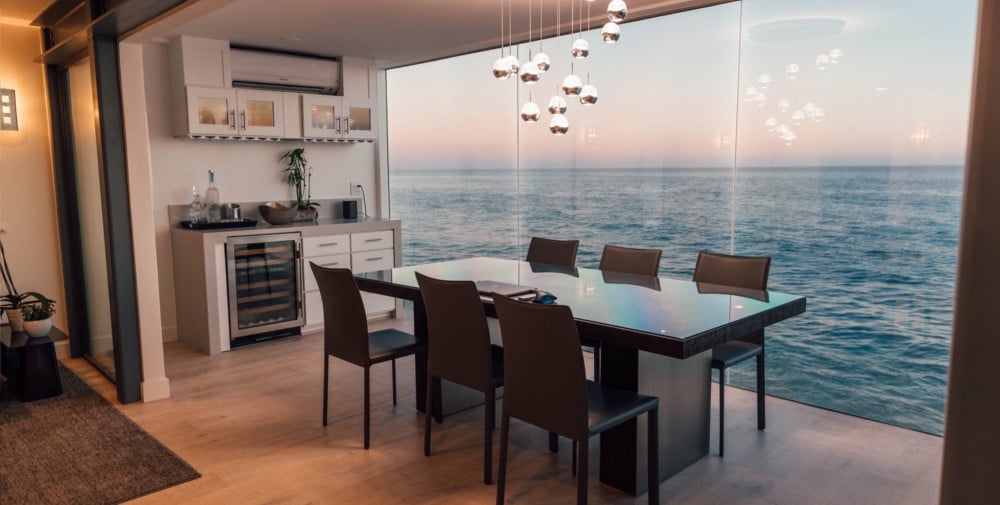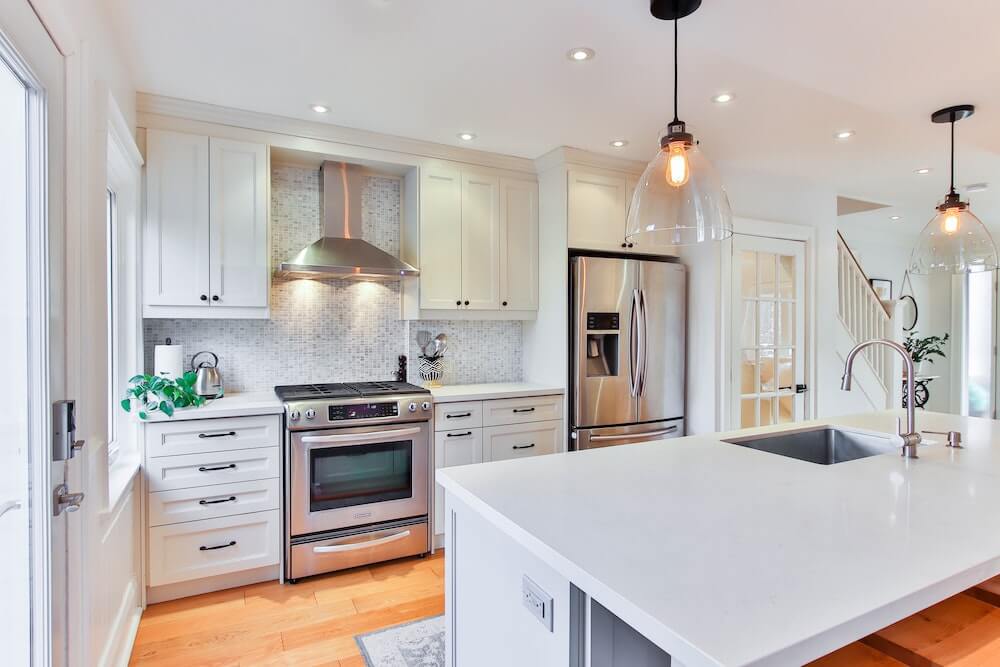Considering investing in real estate for rental purposes? You’ll be faced with many questions along the way, not the least of which is whether you’ll rent out your property on a short- or long-term basis.
Both have their advantages and drawbacks. But depending on your needs and goals, one option may be a clear winner.
To help you make the right choice, we’re reviewing everything you need to know here, including what’s involved in long-term vs. short-term rental management and the pros and cons of each.
Don’t see the form to download the Rental Agreement Template? Click here.
At a glance: short-term vs. long-term rentals
- Short-term rentals are typically rented out on a daily, weekly, or monthly basis. Vacation rentals make up the majority of short-term rentals.
- Advantages of short-term rentals include higher income potential, greater flexibility and access to your property, and less wear and tear.
- Disadvantages of short-term rentals include higher operating costs, lack of guaranteed income, the higher oversight necessary to manage them, and local regulations.
- Long-term rentals are primarily residential and are typically rented out with a 12-month lease and fixed monthly rent.
- Advantages of long-term rentals include guaranteed income, less turnover, and less management required.
- Disadvantages of long-term rentals include lower income potential, less flexibility in accessing and using your property, and more work to find the right tenant.
Short-term rental vs. long-term rental definitions
What is a short-term vacation rental?
Before anything else, let’s familiarize ourselves with the definition of short-term rental properties.
A short-term rental is a furnished property rented out on a short-term basis, such as by the night, week, or even month. Vacation rentals make up the majority of short-term rentals, although you can also find property owners who rent out rooms by the month.
Many owners of short-term vacation rentals rent their property for the majority of the year when they are not using it themselves. This type of rental has become a hugely popular alternative to hotels in the last 20 years or so, most notably with the surge of sharing economy websites such as Airbnb and Vrbo.
What is a long-term rental?
Now, for a long-term rental definition. Whereas short-term rentals are typically rented as vacation rentals, long-term rentals are primarily residential. They tend to be rented out with 12-month leases at a fixed monthly rate.
What’s more, the tenant is typically responsible for paying the utilities and furnishing the property.
Pros and cons of short-term rentals
Wondering whether a short- or long-term rental makes the most sense for you? Let’s take a look at the pros and cons of both, starting with the benefits of short-term rentals.
Pros of short-term rentals
1. Higher rental income potential
One of the biggest short-term rental benefits comes down to income potential. Not only can you set fluctuating rates depending on your area’s high and low season, but you can also set a minimum length of stay for your most popular times of year to ensure you receive maximum profits.
2. More flexibility
For owners who rent their properties short-term, there is a lot more flexibility involved for you and yours. You can specifically block off calendar periods that you want to keep free for your personal use without inconveniencing anyone.
3. Less wear and tear
In general, vacation rental contract lengths range from a few days to a few weeks maximum. Shorter lengths of stay ensure that guests are simply visiting your property, and so won’t be thinking about redecorating or rearranging furniture.

4. Tax breaks and deductions
Many vacation rental owners are entitled to certain tax breaks or even deductible property expenses because the property isn’t being let long-term. Be sure to check your local authority’s rules and regulations on this.
5. The sharing economy
We hear a lot these days about the sharing economy and its positive effects on wider society. By letting your property short-term to vacationers, you’re showing that you’re an innovator who is helping contribute to this modern way of living and thinking.
6. Automation
Advancements in technology such as smart apps and smart locks have made it easier to manage vacation rentals even if you don’t live nearby.
Cons of short-term rentals
1. More maintenance and upgrades
When your business is vacation rentals, you need to maintain the property in excellent shape or you could receive negative reviews.
This consists not only of regular cleaning and maintenance, but also takes into account changing technologies and guest preferences. You’ll need to update your rental amenities every so often to include all the essentials and more for a pleasant stay—and this can come with a hefty price tag.
2. Not guaranteed income
Many vacation rental owners struggle with seasonality. While their high season is fully booked, off-peak bookings are scarce, causing them to lose money. While you can adjust your rates to compensate for seasonality (cheap deals off-peak and more expensive during peak times), income and bookings are not always guaranteed.
Pro tip: Use Lodgify Dynamic Pricing to keep your vacation rental booked year-round! Lodgify Dynamic Pricing uses a sophisticated algorithm that takes into account 40+ listing attributes, market conditions, and local trends to give you perfectly tailored nightly rate recommendations for your listing.

3. Competition from surrounding properties
Unlike the housing market, in which properties are swamped with interest by renters, the vacation rental market sees many more homes listed than travelers searching. This may put some owners at a disadvantage (again, depending on location and availability) because competition for vacation rentals could be rife in your area.
4. Too many things to manage
While vacation rentals are a great way to earn semi-passive income, their management is anything but passive. From ensuring calendar availability is correct to facilitating a smooth booking process, guest turnover, maintenance, and the rest—vacation rentals can be hard work if you don’t have the right tools.
5. Regulations on the rise
Because of affordable housing shortages, more and more local and state governments are implementing vacation rental regulations. These rules often implement specific registration processes, limit the number of vacation rentals allowed within cities/neighborhoods, and charge fees to cover oversight of the industry.
Needless to say, such regulations can have a significant impact on the success of your vacation rental. So, be sure to check regulations in your area before taking the plunge.
Pros and cons of long-term rentals
Now, let’s take a look at the advantages and disadvantages of renting out long-term rentals.
Pros of long-term rentals
1. Consistent income
One of the key advantages of renting your property on a long-term basis is knowing you have a monthly rental income you can rely on. This can help take the pressure off new homeowners who have a lot of other expenses to worry about.
Additionally, long-term renters are generally responsible for paying monthly and quarterly utility bills for electricity, gas, water, and even the internet.
2. Easier to manage
Whether you choose to hire a property manager or manage the property yourself, it will require less time than a short-term rental. You don’t have to promote the rental property as much, tackle frequent rental turnover, or make sure it’s ready to rent.
3. Less turnover
If you’re renting to long-term guests, you’ll have less to worry about when it comes to administrative tasks such as paperwork, key handover, and even marketing. Once your renter signs the lease, you know how long (to a certain extent) you can expect them to stay. You only need to worry about filling the house again once you know it will be vacated.

4. There may be no need to furnish
Some (though not all) long-term guests come with their furniture in tow. This can make the decision easy if you’re thinking about leasing your unfurnished property. Not only will you have a guaranteed monthly rent payment coming in, but you also won’t need to fork out for new furnishings.
5. You can charge a high security deposit
If you’re worried about the finer details of renting, such as insurance, rental agreements, and security deposits, there’s no need to panic.
For long-term rentals, you can usually charge quite a high security deposit. This will then be returned to the guest at the end of the tenancy unless there’s property damage. These deposits can give owners a lot of peace of mind when it comes to renting out their properties.
Cons of long-term rentals
1. Less earning potential
Rental properties that are rented over a longer period of time typically bring in less income than vacation rentals. According to Forbes, short-term rentals can bring about 30% higher profits than long-term rentals.
There’s not necessarily a “peak season” since people need housing year-round. But even if there were, you have less flexibility when it comes to raising the rent.
2. Less flexibility
Unfortunately, in the world of long-term rentals, there are no spontaneous trips to your mountain lodge or July 4th getaways to your beach hut for celebrations. If you have a tenant in your home, you can’t ask them to leave for a weekend here and there.
This can be a huge turnoff for many owners who are renting out their property simply to gain some extra income in the months and weeks it’s not being used.
3. Less control over the property
For short-term rentals, owners benefit from being able to inspect the property between stays to ensure everything is in working order. For long-term rentals, however, it’s a bit more complicated. You would likely have to give considerable notice (from 24 hours to one week) before dropping by for routine maintenance and security checks.
4. Restrictions in your neighborhood/city
Depending on your property type and its location, you’ll have to take into account different laws, restrictions, and licenses before leasing it long-term. However, that’s increasingly the case for vacation rentals as well, so it’s crucial to look at the specific regulations in your area.
5. The lengthy process to find the right tenant
When someone is going to stay in your home for a long time, you want to make sure they’re a good fit. Unfortunately, with vetting and checking references, this can soon turn into a very long process.
In contrast, it’s generally a much easier process for short-term renting—especially with tools like instant booking.
Short-term rental vs. long-term rental tax
One of the biggest questions that arises is how the taxes will differ for short-term rentals vs. long-term rentals.
Short-term rental tax benefits include the ability to deduct furniture, decor, and maintenance costs. Plus, if you rent out your property for less than 14 days a year, you won’t be taxed on the rental income.
However, vacation rental owners are often required to pay transient occupancy tax on top of property taxes (as well as the registration fees mentioned above).
Long-term rentals, on the other hand, often receive more tax benefits—especially as many local governments are incentivizing long-term rentals to increase the availability of affordable housing.
Of course, the best way to determine whether you’ll get better tax breaks with short-term vs. long-term rental properties is to consult a qualified tax professional.

Short-term vs. long-term rental FAQs
What is the definition of a short-term rental?
Short-term rentals are properties that are rented out for a short period of time, typically by the night, week, or month. However, the maximum length a property can be rented and still be considered short-term varies according to local regulations.
Is three months considered a short-term rental?
This depends on the regulations in your area. In a lot of regions, leases of less than six months are considered short-term rentals. However, it’s crucial to check your location regulations to see how your property would be classified.
What is the definition of long-term rental properties?
A long-term rental is a property rented out for a long period of time. Long-term rentals often have a year-long lease, but may be rented for shorter periods depending on the landlord. While contracts for long-term rentals typically have a defined end date, it’s usually possible to renew them indefinitely.
What makes more money: long-term or short-term rentals?
According to Forbes, short-term rentals can bring about 30% higher profits than long-term rentals.
Vacation rental vs. long-term rental investment: which is best for you?
There’s no easy answer here. After all, what sounds like a con for one person may be a pro for another.
However, the biggest differentiating factor between long- and short-term rentals is earning power. As we explained above, short-term rentals can bring about 30% higher profits than long-term rentals.
The caveat, of course, is that short-term rentals require more oversight. However, the additional revenue might just justify the extra work—especially if you have the right vacation rental software to automate your tasks.
Overall, there are plenty of benefits to both long- and short-term renting, which go above and beyond those listed here. That being said, if you’re thinking about starting a vacation rental business, you’ll need a rental agreement. Download our free editable template below!
Don’t see the form to download the Rental Agreement Template? Click here.



